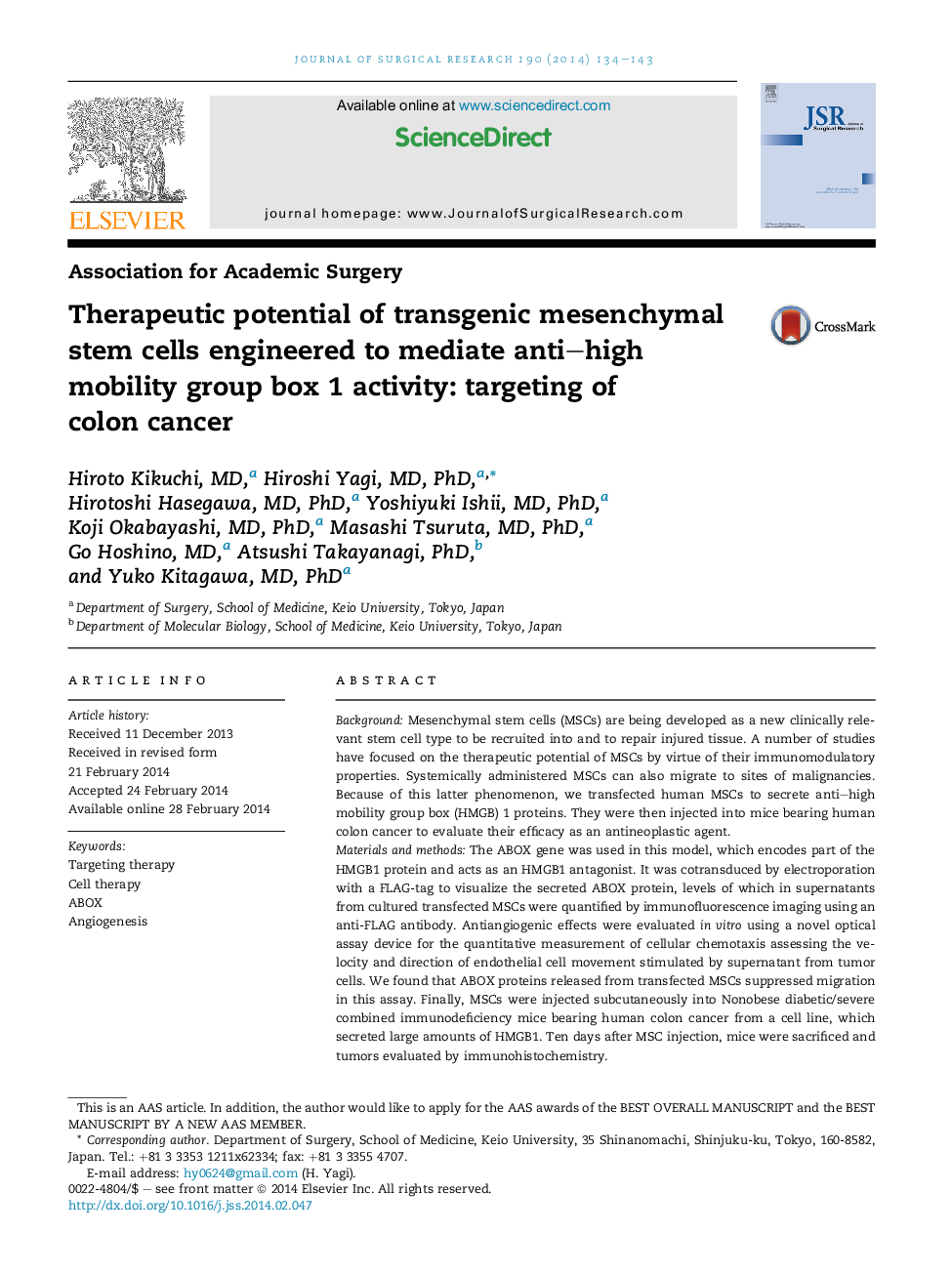| Article ID | Journal | Published Year | Pages | File Type |
|---|---|---|---|---|
| 4300172 | Journal of Surgical Research | 2014 | 10 Pages |
BackgroundMesenchymal stem cells (MSCs) are being developed as a new clinically relevant stem cell type to be recruited into and to repair injured tissue. A number of studies have focused on the therapeutic potential of MSCs by virtue of their immunomodulatory properties. Systemically administered MSCs can also migrate to sites of malignancies. Because of this latter phenomenon, we transfected human MSCs to secrete anti–high mobility group box (HMGB) 1 proteins. They were then injected into mice bearing human colon cancer to evaluate their efficacy as an antineoplastic agent.Materials and methodsThe ABOX gene was used in this model, which encodes part of the HMGB1 protein and acts as an HMGB1 antagonist. It was cotransduced by electroporation with a FLAG-tag to visualize the secreted ABOX protein, levels of which in supernatants from cultured transfected MSCs were quantified by immunofluorescence imaging using an anti-FLAG antibody. Antiangiogenic effects were evaluated in vitro using a novel optical assay device for the quantitative measurement of cellular chemotaxis assessing the velocity and direction of endothelial cell movement stimulated by supernatant from tumor cells. We found that ABOX proteins released from transfected MSCs suppressed migration in this assay. Finally, MSCs were injected subcutaneously into Nonobese diabetic/severe combined immunodeficiency mice bearing human colon cancer from a cell line, which secreted large amounts of HMGB1. Ten days after MSC injection, mice were sacrificed and tumors evaluated by immunohistochemistry.ResultsFrom 12 ho through 7 d after gene transfection, ABOX proteins secreted from MSCs could be detected by immunofluorescence and enzyme-linked immunosorbent assay. Quantitative measurement of cellular chemotaxis demonstrated that ABOX proteins secreted from transfected MSCs decreased the velocity and interfered with the direction of movement of vascular endothelial cells. Moreover, in an in vivo human colon cancer xenograft model, injection of anti-HMGB1–transfected MSCs resulted in a decreased tumor volume due to the antiangiogenic properties of the secreted ABOX proteins.ConclusionsMSC modified to secrete HMGB1 antagonist proteins have therapeutic antineoplastic potential. These findings may contribute to future novel targeting strategies using autologous bone marrow–derived cells as gene delivery vectors.
